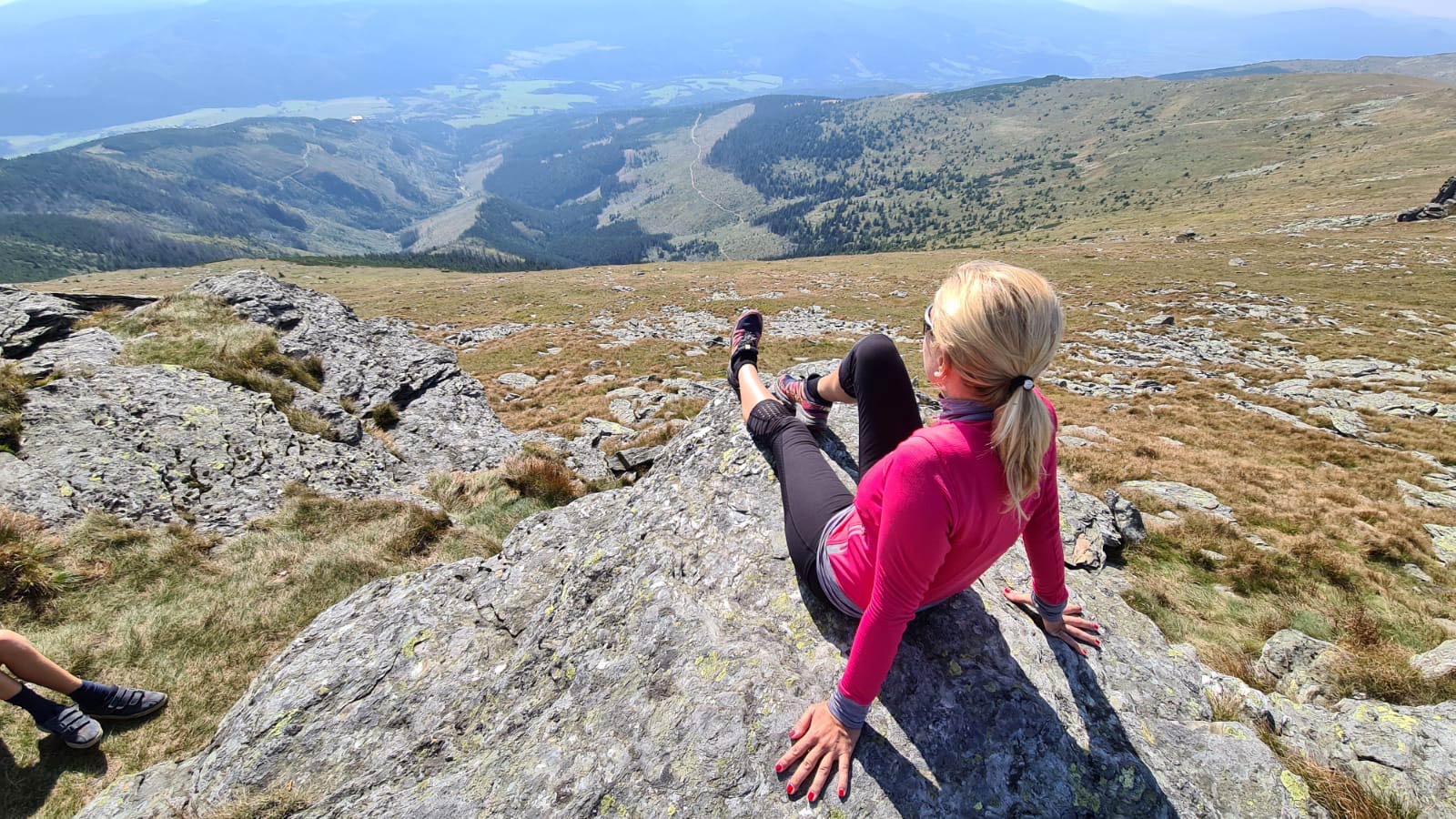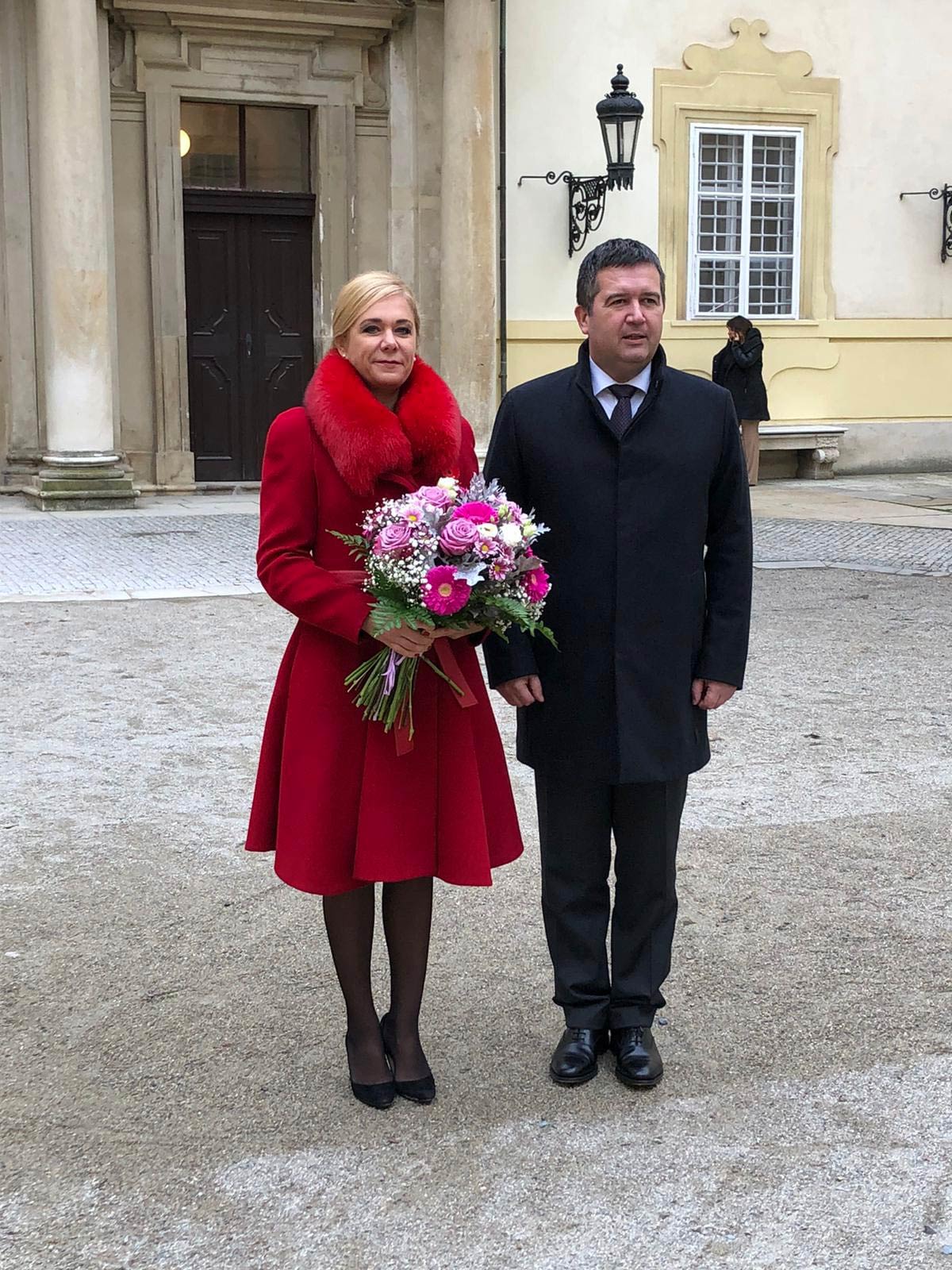You might think this beautiful, subtle and smart blonde is an owner of a fashion boutique. But the reality is quite different. Denisa Saková has a degree in finance, works in politics and was Minister of the Interior of the Slovak Republic for two years.
What is it like being one of the leaders of the HLAS-Social Democratic Party, by far the most popular party in Slovakia, and to have three years to go until regular elections?
I take it as a huge responsibility. To me and my colleagues, being a politician is not a job, but a mission, and you are responsible for the whole nation, for its people. And it doesn't matter whether you are on the opposition or the coalition side.
But being on the coalition side does let you influence matters quite a bit more, especially with the current distribution of power giving the government parties a constitutional majority. Isn’t your clasp knife opening in your pocket (I’m angry, I feel like hurting someone), as we say in Czechia, when you see what the current government is doing?
Fortunately, we don't have that saying, because it would be a bit too much. But yes, it often happens that I find myself shaking my head at what the government parties are doing. I am sorry to have to say these words, but the last few months of our government have been full of amateurish and unprofessional decisions. Unfortunately, this has had a negative impact on the entire nation and the result is Slovakia's sad lead in the number of deaths from COVID to population ratio, and the highest increase in the number of deaths per year since World War II. I am very sorry and I feel for the families who have been so tragically affected by the consequences of this governmental amateurism and unprofessionalism.
Despite the fact that the regular elections are still quite a ways away, you are trying to call a referendum that could shorten the term and cause early elections. How are you tackling the collecting of signatures necessary for a referendum? And do you believe that your referendum could be valid, even though the several previous ones failed?
You are right that several referendums have taken place in the past and all have been unsuccessful (with the exception of the referendum on joining the EU, note, ed.). You must first set up a petitions committee and collect three hundred and fifty thousand signatures so that the petition can be handed over to the head of state, who can then call a referendum. As far as this referendum is concerned, it wasn’t us at HLAS who wanted it. But we are urged by citizens every day to do something about the current political situation. To help Slovakia out of this pitiful state that concerns not only healthcare, but the economy as well. We are among countries with the lowest economic aid for the population affected by anti-coronavirus measures. A large part of households in Slovakia is on the verge of economic collapse, because aid is negligible and in some sectors it’s virtually zero. And people are asking us for help in this situation. The only legitimate tool we have as the opposition is to try to hold a referendum. It will then be up to the citizens themselves to have sufficient turnout, a majority of all eligible voters have to vote in the referendum and must agree that they want the early end of this term and early elections.
If you bring the President three hundred and fifty thousand signatures, will she call a referendum?
The President has already announced that she will pass it on to the Constitutional Court, and she will decide to call a referendum after its verdict.
What stage are you at in regards to collecting signatures?
As we speak, we have recorded approximately three hundred thousand signatures and we are literally receiving bags of other petition sheets. The number of signatures is increasing at an unexpected rate. And it is possible that by the end of April we will have all the signatures we need.
Let's go back three years, when you took over the post of Minister of the Interior in April 2018. It was after the murder of Ján Kuciak and his partner, the streets and squares were full of anti-government demonstrations, and the murder investigation was far from successful. Wasn't it political suicide to take over the seat of Minister in a situation like that?
Yes, it was a challenge, and in the history of independent Slovakia there had probably never been a hotter ministerial seat than the one I sat in. I had been working at the Ministry of the Interior for about ten years at the time, and by the time I received the offer, I was Secretary of State. I accepted it mainly because I felt a responsibility to my colleagues, whom I had worked with for ten years and had carried out many successful projects with. I took up this position to try and help the ministry and the police force in difficult times when a billowing wave of criticism was coming their way, including the media lynch mob. And, of course, I wanted to try to restore the ministry’s good reputation from its previous years.
When you left, did you have the feeling that you succeeded?
Together with Prime Minister Peter Pellegrini, we had three priorities: to investigate the murder of Ján Kuciak and his fiancée, to calm the public mood, and to restore Slovakia's reputation abroad. And in five months after my start we accomplished the first point - the murderers of Ján Kuciak and his partner were behind bars.
After the elections, together with Peter Pellegrini, you left SMER and founded your party HLAS - Social Democracy. How do you get along with your former colleagues today? Are you at daggers drawn?
For myself and my colleagues, I can say that the cooperation with former colleagues from SMER is very professional and supportive; there is a friendly atmosphere among us.
Can you imagine forming a coalition government with SMER if you win the election?
In Slovakia, we have a saying: "Don’t carve up a bear that is running in the woods." The only thing we can rule out, and we say this clearly, is that we will not cooperate with any party that has extremist views, such as Ľudová strana Naše Slovensko.
The author is the editor of the Deník

Denisa loves the mountains. After a hike to Kráľova hoľa.
CV BOX
Denisa Saková (born 17th April, 1976 in Nitra) is a former Minister of the Interior in the government of Peter Pellegrini.
The economics graduate worked in the IT sector from 2000. In 2007 she started working at the Ministry of the Interior, first as the Director of the IT section, then as the Head of the Service Office. She played a significant role in Slovakia's successful preparations for joining the Schengen area.
In 2016, she ran for parliament for SMER she was elected as an MP, but resigned because she became Secretary of State for the Minister of the Interior.
She was appointed Minister of the Interior in April 2018 and served as Head of Department until March 2020. In the February elections, she was re-elected as an MP for SMER, and in the summer of 2020 she joined the new HLAS-Social Democratic Party, led by Peter Pellegrini. HLAS is currently the most popular party in Slovakia with the support of about 23% of voters.
Denisa Saková is divorced and has a son.

As Minister of the Interior with her Czech counterpart Jan Hamáček.
POLITICS AND HOUSEHOLD
MPs are notorious for arguing in the parliament, and then going to have a beer together. But does this also apply to female MPs? "There aren't many women in the parliament, but we like to have coffee together," Denisa says. "We get on with our coalition colleagues, perhaps not all of us, but quite a few. And we talk not only about politics, but also about the household, or the upbringing of children. Women can sometimes be more pragmatic in some regards."